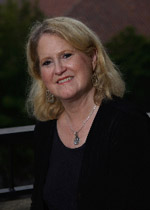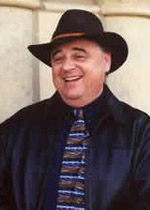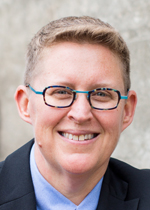Project Leaders

Gordon H. Chang, Co-Director
Professor of History, Olive H. Palmer Professor in Humanities
Gordon H. Chang’s research focuses on the history of America-East Asia relations and on Asian American history. He is affiliated with the Center for Comparative Studies in Race and Ethnicity, the American Studies Program, International Relations Program, and the Center for East Asian Studies. He is particularly interested in the historical connections between race and ethnicity in America and foreign relations, and explores these interconnections in his teaching and scholarship.
Chang’s most recent work, American Asian Art, is the first comprehensive study of the lives and artistic production of American Asian artists active in the United States before 1970. The books features essays by ten leading scholars, biographies of more than 150 artists and over 400 reproductions of artwork, ephemera and images of artists. He is currently completing a long history of America-China relations from Jamestown to the present and is studying Leland Stanford’s relationship to the Chinese in America.
Shelley Fisher Fishkin, Co-Director
Joseph S. Atha Professor of Humanities, Professor of English, and Director of American Studies, Stanford University
Shelley Fisher Fishkin has taught at Stanford since 2003. She is the author, editor, or co-editor of over forty books, and has published over one hundred articles, essays and reviews, many of which have focused on issues of race and racism in America, and on recovering previously silenced voices from the past. Her books have won two “Outstanding Academic Title” awards from Choice, an award from the the National Journalism Scholarship Society, and “Outstanding Reference Work” awards from Library Journal and the New York Public Library. She holds a Ph.D. in American Studies from Yale, and before coming to Stanford, was chair of the American Studies Department at the University of Texas at Austin.
She is a member of the Board of Governors of the Humanities Research Institute of the University of California, and serves on the international jury for the 2013 Francqui Prize. She is a Past President of the American Studies Association, past chair of the Nonfiction Prose Division of the Modern Language Association, and a Founding Editor of the Journal of Transnational American Studies. For further info please visit her biography on the English Department website.
Hilton Obenzinger, Associate Director
Lecturer, American Studies and English, Stanford University
Hilton Obenzinger has been a lecturer at Stanford University in American Studies and English and Associate Director for Honors and Advanced Writing. He received his doctorate from the Modern Thought and Literature program at Stanford in 1997. A critic, poet, novelist and historian, and the recipient of the American Book Award, Hilton Obenzinger is the author of American Palestine: Melville, Twain, and the Holy Land Mania, Cannibal Eliot and the Lost Histories of San Francisco, New York on Fire, his recent autobiographical novel Busy Dying, and other books, as well as articles in scholarly journals on American Holy Land travel, the history of California, Mark Twain, Herman Melville, cultural pluralism, and American cultural interactions with the Middle East. He has extensive experience producing educational materials and is assisting in the development of the Project’s web site content and digital visualizations, along with related writing about the Chinese railroad workers.
Barbara Voss, Director of Archaeology
Associate Professor, Department of Anthropology, Stanford University
Dr. Voss is a historical archaeologist who studies the dynamics and outcomes of transnational cultural encounters on the Pacific Rim, including European colonial projects and 19th century migration from China. Her current research projects include the Market Street Chinatown Archaeology Project in San Jose, California (Principal Investigator); the interdisciplinary Chinese Railroad Workers of North America Project (Director of Archaeology); and Research Cooperation on Home Cultures of 19th Century Overseas Chinese (Co-principal Investigator, with Dr. Jinhua (Selia) Tan. She also serves on the Advisory Board for the National Park Service Asian American/Pacific Islander Heritage Theme Study. Dr. Voss’s publications include Archaeologies of Sexuality (Routledge, 2000, co-edited with Robert A. Schmidt), The Archaeology of Ethnogenesis (University of California Press, 2008), The Archaeology of Colonialism: Intimate Encounters and Sexual Effects (Cambridge, 2012, co-edited with Eleanor Casella), and two thematic issues of the journal Historical Archaeology, “The Archaeology of Chinese Immigrant and Chinese American Communities” (2008, co-edited with Bryn Williams) and “The Archaeology of Chinese Railroad Workers in North America” (2015).
Barre Fong
Independent Filmmaker and Graphic Designer
Barre Fong is a fourth generation, native San Franciscan. He was educated at the University of San Francisco and graduated in 1990. He has been married since 1997 and is the father of two teenage children. Professionally, Barre has owned and operated a graphic design, photography and video production studio since 1991. Serving local and international clients, work has included advertising, corporate collateral and communication, commercial photography, video production, website design and website administration. In 2009, Barre began filmmaking in earnest – completing seven short documentary films over the next eight years. The film he directed and produced in 2106, Digging to Chinatown, was recently featured at the Seattle Asian American Film Festival. Barre serves on the Board of Trustees of Lick-Wilmerding High School in San Francisco and formerly served as the President of the Board of Directors at the Chinese Historical Society of America.
Teri Hessel
Project Researcher
Teri Hessel has a BA in American History from UC Santa Barbara and a MLA from Stanford University. She has a particular interest in literature by 19th century marginalized groups in America as demonstrated by her thesis “Frank J. Webb’s The Garies and Their Friends: A Reconsideration of an Early African American Novel.” Happiest in the stacks with their tantalizing possibility of discovery, Teri will investigate primary sources to help recover the 19th-century Chinese experience in America.
Roland Hsu
Director of Research
Roland Hsu is assisting with archival research and writing on the nineteenth-century history of the Chinese Railroad Workers in North America. Hsu’s publications address migration and ethnic identity formation. His writing focuses on the history of migration, and on contemporary immigration policy questions, combining humanistic and social science methods and materials to answer what displaces peoples, how do societies respond to migration, and what are the experiences of resettlement. Currently in the area of U.S.-Chinese history, Hsu is researching U.S. receptions of Chinese intellectuals in exile, who visited China during 1971 to 1981, in the wake of the Henry Kissinger and Richard Nixon covert and public meetings with Mao Zedong and Zhou Enlai. Hsu earned his Ph.D. in Modern European History at the University of Chicago. He holds an M.A. in Art History from Chicago, and a dual B.A. in Art History and also English Literature from the University of California, Berkeley.
Kevin Hsu
Project Editor
Kevin Fan Hsu develops the Project’s digital strategy, edits and curates content, and explores how diverse media can communicate the stories of the Chinese railroad workers and deepen our understanding of social and environmental conditions. Kevin teaches for the program in International Policy Studies and Urban Studies at Stanford University, where he co-founded the Human Cities Initiative. His courses focus on international cooperation and sustainable development, especially in the Asia-Pacific region. Kevin works in Shanghai on urban infrastructure development, and received three degrees from Stanford—in Earth Systems, International Relations, and Civil & Environmental Engineering.
Connie Young Yu
Independent Scholar
Connie Young Yu, independent historian, has documented Chinese American history in exhibits, videos, and writings largely based on oral history, artifacts and memorabilia of her family. Her maternal great-grandfather, Lee Wong Sang worked on the Transcontinental Railroad, and her paternal grandfather Young Soong Quong fled the Market Street Chinatown in San Jose when it was burned by arson. Her father, John C. Young, was born and raised in Heinlenville Chinatown, San Jose, which is the subject of Yu’s book “Chinatown, San Jose” published by History/San Jose.
The exhibit at the Chinese Historical Society, “Detained at Liberty’s Door” is about Yu’s maternal grandmother held on Angel Island Immigration Station. Connie was one of the community activists that saved the immigration barracks on Angel Island in 1974. She was a consultant on the archaeological excavations of the Woolen Mills Chinatown (at route 87) and San Jose’s Corporation Yard in Japantown. With Leslie Masunaga, Yu curated the exhibit on the history and archaeology of Chinatown and early Japantown, “On Common Ground”, for the Japanese American Museum of San Jose. She is co-authoring a book with Masunaga, “Digging to Common Ground,” to be published by the California History Center. Yu is a board member emeritus, Chinese Historical Society of America and serves as president of the board of trustees of the Hakone Foundation.
Project Conveners
The project was originally convened by Gordon H. Chang, Shelley Fishkin, and the following individuals:
Evelyn Hu-Dehart, Professor of History and Ethnic Studies, and Director, Center for the Study of Race and Ethnicity in America at Brown University; and Dongfang Shao, Chief of the Asian Division at the U.S. Library of Congress.
